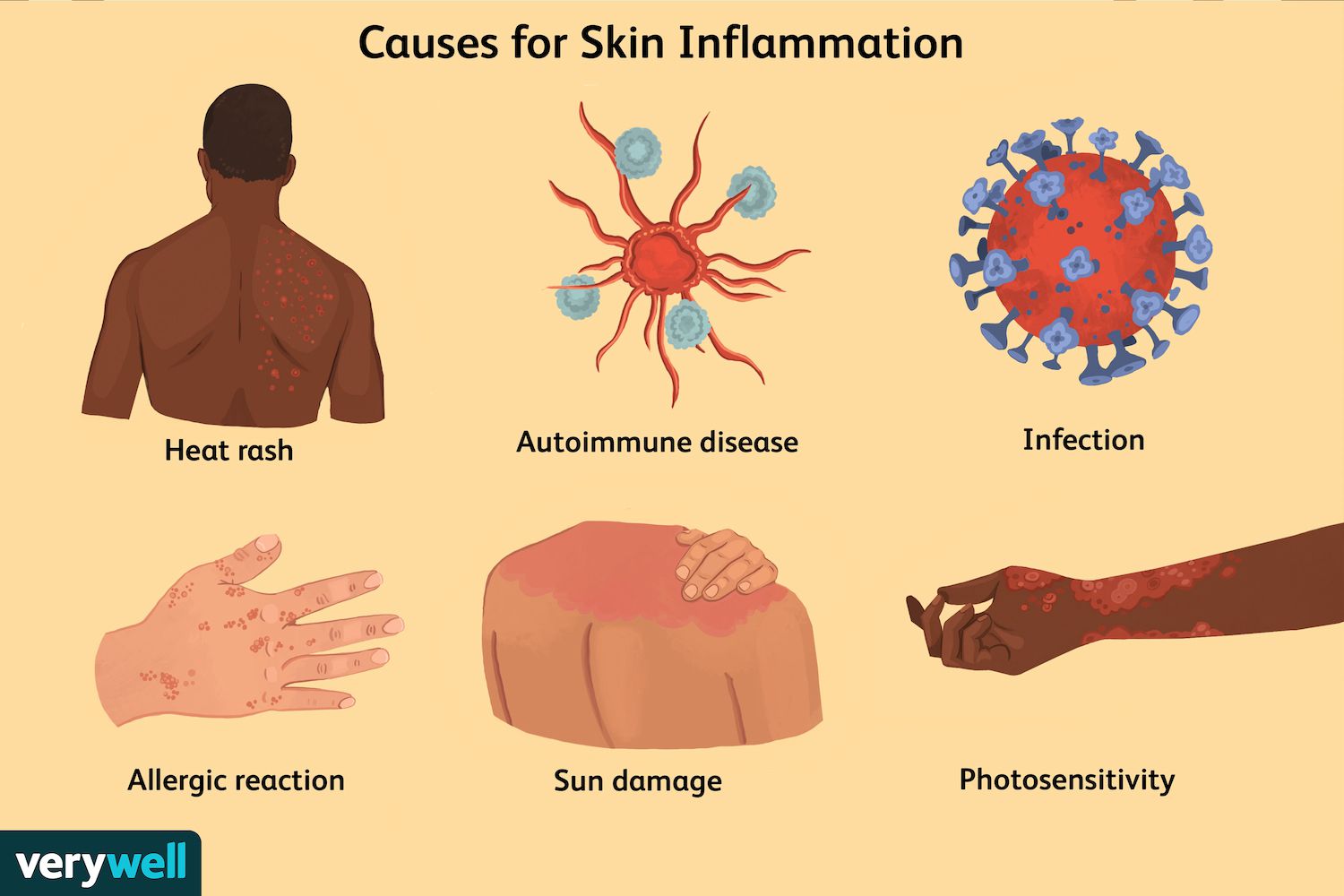Quick health test: how damaging is inflammation to your body?
You’re forgiven if you believe inflammation is extremely harmful. According to news sources all across the world, it is one of the leading causes of death. Chronic inflammation has been linked to heart disease, stroke, dementia, and cancer. And that’s only the beginning. So, how do you minimise inflammation in your body?
That’s an excellent question! But, before we get to the solutions, let’s define inflammation — and what it isn’t.
101 on Inflammation
There are numerous misconceptions concerning inflammation. One common definition of inflammation is the body’s reaction to an injury, allergy, or infection, which causes redness, warmth, discomfort, swelling, and functional limitations. That is correct if we are discussing a splinter in your finger, bacterial pneumonia, or a poison ivy rash. However, this is only part of the tale because there are several types of inflammation:
Acute inflammation appears unexpectedly, lasts for days to weeks, and then subsides if the underlying cause, such as an injury or infection, is treated. In general, acute inflammation is a reaction that strives to repair the afflicted area. That is the kind stated in the preceding definition.
Chronic inflammation, on the other hand, is entirely different. It might appear for no obvious medical reason, persist a lifetime, and inflict harm rather than healing. This form of inflammation is frequently associated with chronic disease, such as obesity, diabetes, cardiovascular disease, including heart attacks and stroke, certain infections, such as hepatitis C, autoimmune disease, cancer, and stress, either psychological or physical.
Which cells play a role in inflammation?
Both types of inflammation involve cells that are part of the body’s immune system. That makes logical, because the immune system protects the body from all types of threats.
A range of immune cells, including neutrophils, lymphocytes, and macrophages, rush in to trigger inflammation depending on the duration, location, and source of the problem. Each cell type has a specific purpose, such as combating foreign invaders, producing antibodies, and eliminating dead cells.
4 myths and fallacies about inflammation
Most modern illnesses are caused by inflammation.
Not so quickly. Yes, inflammation is associated with a lot of chronic conditions. Controlling inflammation is a crucial element of treatment in many instances. It’s also true that uncontrolled inflammation adds to long-term health issues.
However, most chronic diseases are not caused by inflammation. Atherosclerosis, for example, causes blood vessel inflammation. However, we don’t know whether this was caused by chronic inflammation or if the main causes were traditional risk factors (such as high cholesterol, diabetes, and smoking, all of which promote inflammation).
You can tell when you’re inflamed.
True in some circumstances. Rheumatoid arthritis patients, for example, may tell when their joints are inflamed because they suffer increased pain, edoema, and stiffness. However, the type of inflammation observed in obesity, diabetes, and cardiovascular disease, for example, is asymptomatic. Yes, inflammation can cause weariness, cognitive fog, headaches, and other symptoms. However, same symptoms are common in people who do not have inflammation.
Most chronic diseases would be eliminated if chronic inflammation could be controlled.
Not so. Instead of suppressing inflammation, effective treatments often address the source of the inflammation. A person with rheumatoid arthritis may be prescribed steroids or other anti-inflammatory medications to alleviate their symptoms. To avoid irreversible joint damage, they also take methotrexate to address the underlying ailment that is generating the inflammation.
Anti-inflammatory diets or foods (blueberries! kale! garlic!) help to prevent disease by reducing inflammation.
While it is true that some foods and diets are healthier than others, it is unclear if their advantages are related to inflammation reduction. Changing from a traditional Western diet to a “anti-inflammatory diet” (such as the Mediterranean diet) benefits health in a variety of ways. Inflammation reduction is simply one of several proposed methods.
In conclusion
Inflammation isn’t a lone enemy who takes millions of lives every year. Even if you could entirely remove inflammation — which isn’t feasible — you wouldn’t want to. Inflammation is suppressed, leaving you open to fatal infections. Your body couldn’t respond to allergens and pollutants or heal from injuries.
Inflammation is difficult to understand. While acute inflammation is your body’s normal, usually beneficial response to injury, illness, or other threats, it can get out of hand. We need to learn more about what causes inflammation and what causes it to become chronic. Instead than blaming inflammation for every sickness or expecting that consuming specific foods will lower it, we can treat the fundamental cause.
There is no quick or easy remedy for chronic inflammation. To reduce it, we must first identify, prevent, and treat the underlying causes. However, there is some good news. Most of the time, inflammation exists in your body for a reason and fulfils its job. When it causes problems, you can take efforts to remedy the situation.
Post Disclaimer
Please understand that any advice or guidelines revealed here are not even remotely a substitute for sound medical advice from a licensed healthcare provider. Make sure to consult with a professional physician before making any purchasing decision if you use medications or have concerns following the review details shared above. Individual results may vary as the statements made regarding these products have not been evaluated by the Food and Drug Administration. The efficacy of these products has not been confirmed by FDA-approved research. These products are not intended to diagnose, treat, cure or prevent any disease.
